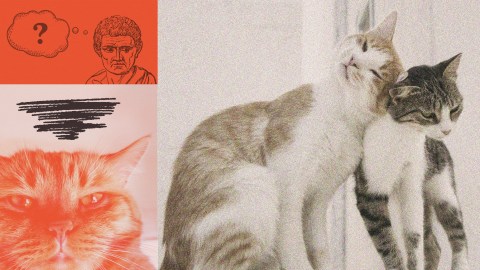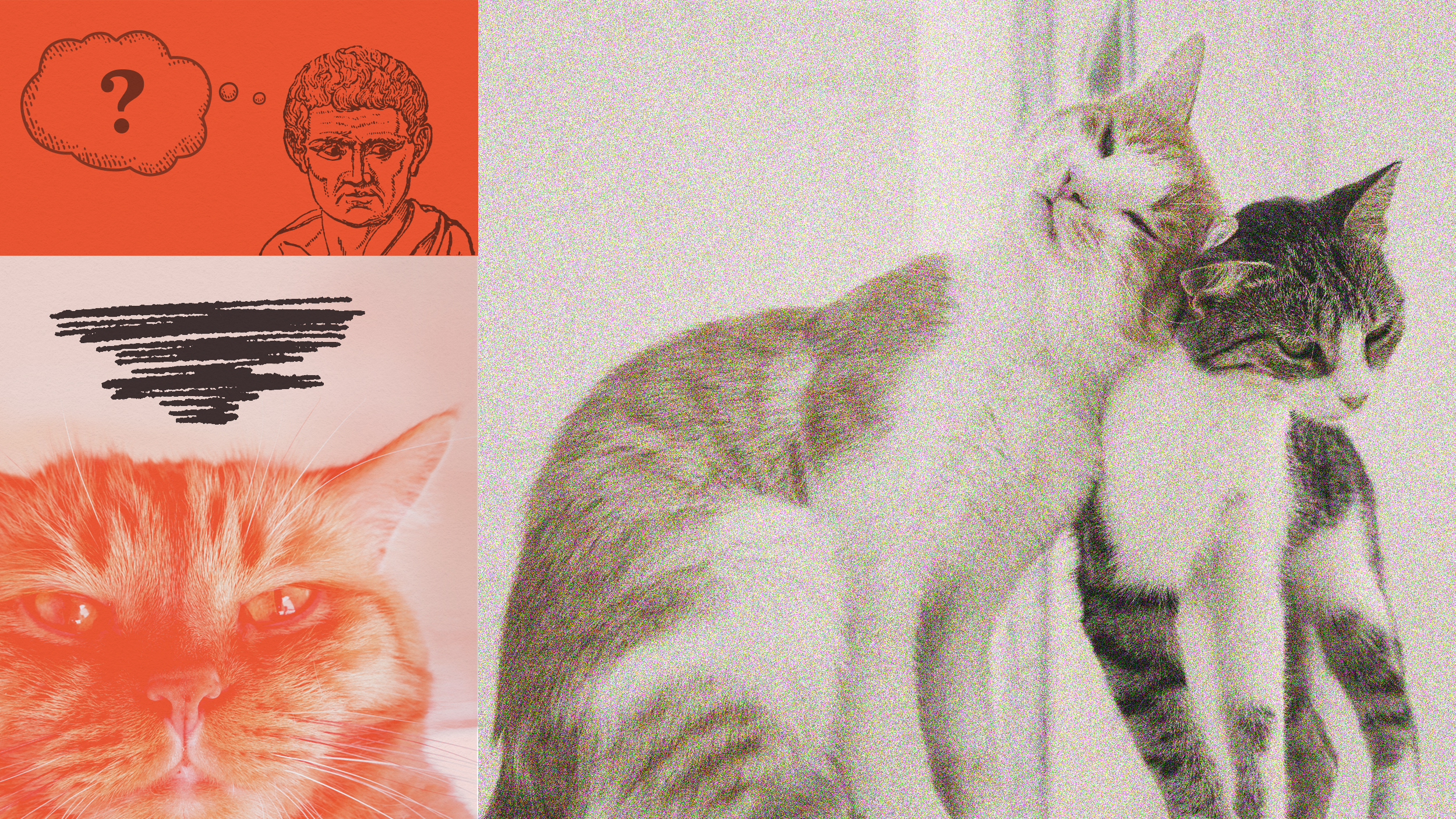Everyday Philosophy: “Is it OK to date someone your friend likes?”

- Welcome to Everyday Philosophy, the column where I use insights from the history of philosophy to help you navigate the daily dilemmas of modern life.
- This week, we look at the question of dating someone you know your friend likes.
- To help answer Anna’s question, we explore the philosophies of Michel de Montaigne and the British Utilitarians.
Is it OK to accept an opportunity presented to you, like dating someone, that a close friend has been loudly wishing for?
– Anna, US
A short and classic problem. It’s the tale that launched a thousand ships and brought down ancient dynasties. It’s as old as recorded history and as fresh as a viral TikTok video. Is it okay to date someone a friend also likes? Anna’s question is broadly about “opportunities,” but I will focus on dating to make it a bit easier. I do enjoy the extra information about Anna’s friend “loudly wishing” for this date. I imagine a Romantic poet draped over a table in the pub, drunkenly lamenting her unrequited love. Meanwhile, Anna sneaks out the back and heads out on a date.
To help Anna in her quest, we will call upon two knights of the philosophical table: utilitarianism and Montaigne’s conception of friendship. Along the way, we shall consider, and possibly pine for, an age when friendship was treated very differently indeed.
Jeremy Bentham and John Stuart Mill: Who’s set to get the most?
If ever you come across a moral dilemma or find yourself wrangling with some decision, the hedonic calculus is often never far behind. The hedonic calculus is an ethical algorithm that tells you what’s right and what’s wrong based on one question: “How many people get the most pleasure?” It goes back to the English philosopher, Jeremy Bentham, and it asks you to take any action or would-be decision and run it through the system. Let’s do so with Anna.
Suppose Anna goes on a date with Jake (made-up name), the guy her friend is loudly wishing for. It’s a good date, and it ends well. It ends very well, indeed. Let’s then give Anna and Jake 10 hedonic points each for the fun they had. Now imagine Anna’s friend at home, eating ice cream, and seething. She’s furious, imagining Anna’s salacious fun. Let’s say Anna’s friend gets minus 10 hedonic points. For Bentham, we add up the score and see it’s 20 to 10 in favor of Anna’s date night. So, date away, Anna.
But for Bentham’s utilitarian successor, John Stuart Mill, something’s off. “Pleasure” is not some blanket, universal unit. It’s not even a measurable hormonal reaction in the brain. What we call “pleasure” changes from person to person, and even for the same person there are different qualities of pleasure. There are what Mill calls “higher” and “lower” pleasures. Now, if we include this fact, the hedonic calculus might come back with a different result. Even if we suppose Anna’s evening ended up in a sybarite orgy of carnality, it is still a basic pleasure. The short-lived euphoria of an orgasm is the lower pleasure of the pig. On the other hand, loyalty and friendship are higher pleasures, and the sense of betrayal and abandonment is a higher pain. The misery of Anna’s friend seething at home weighs much more than the 10-second serotonin explosion of Anna’s pleasure.
Michel de Montaigne : A different kind of friendship
So, the English are divided. The problem with utilitarianism and things with the hedonic calculus is that you can see how quickly things get complicated — how can you measure pleasure? How long will Anna’s relationship last? How quickly will Anna’s friend get over it? Too many variables make for a messy calculation.
A more fruitful avenue might be to consider the virtues of friendship itself. We are living in a time of friendship recession. Friendships today are few, shallow, and easily abandoned. Most friendships now are measured in contractual and instrumental terms: “I will stay friends with you so long as it benefits me.” Is Anna’s friendship no longer serving her properly? Is it getting in the way of a romantic partner? If so, let’s jettison the deadwood and sail on to brighter horizons.
In the 16th century, Michel de Montaigne presented a very different view of friendship. Montaigne wrote of his friendship with Etienne de La Boétie as “so entire and perfect that certainly you will hardly read of the like” and that “our souls mingle and blend with each other so completely that they efface the seam that joined them.” To modern readers, Montaigne’s essay “On Friendship” reads more like a love letter than a text message between mates. The “two souls joined as one” cliché is usually reserved for lovers. If you’ve ever been to a wedding, you’ll likely have heard the line attributed to Aristotle that “love is a single soul dwelling in two bodies.” But, ironically, that quote was never intended to be about romantic love but the love of friendship. Aristotle and Montaigne both believed that friendship was the joining of two people.
If we view Anna’s friendship in light of this, things start to look differently. If friends are seen as just as important as spouses or romantic partners — if not more so — then going on a date is a poor reason to threaten the friendship and betray your union.
So, for Montaigne and Aristotle, it’s bros before hoes and chicks before dicks.
The three questions
If you read Montaigne’s essay on friendship, it’s easy to get swept up in the rhetoric. It’s hard not to pine for a time of such intense and intimate friendships, especially in a time of such vapidity. But, as the modern philosopher Sandra Lynch put it, “[While] this notion of complete union between friends has its appeal for modern and pre-modern audiences alike…it is a highly idealized treatment of friendship that fails to take account of the more familiar and less perfect friendships that we experience to differing degrees and within different contexts in everyday life.” Montaigne himself admitted that friendships like his and La Boétie were only found once every few centuries. They’re rarely enjoyed in most people’s lives. So, we can all be glad for Montaigne’s friendship while also accepting that Anna’s friendships (and all of our friendships) likely fall far below that.
Bringing together the various threads, we can conclude that Anna’s dilemma hinges on three big questions. First, how deep and important is her friendship? Second, how much and what kind of pleasure or happiness will Anna and her date get from dating? Third, how quickly and painlessly will Anna’s friend “get over” the date?
I can’t answer those questions; only Anna can. But as a rule of thumb, I’d argue that a one-night stand of orgasmic escape does not justify the betrayal of a friendship. But the finding of a long-term partner and romantic love might. The messy and ambiguous problem, though, is: how can we ever know when one doesn’t become the other?




